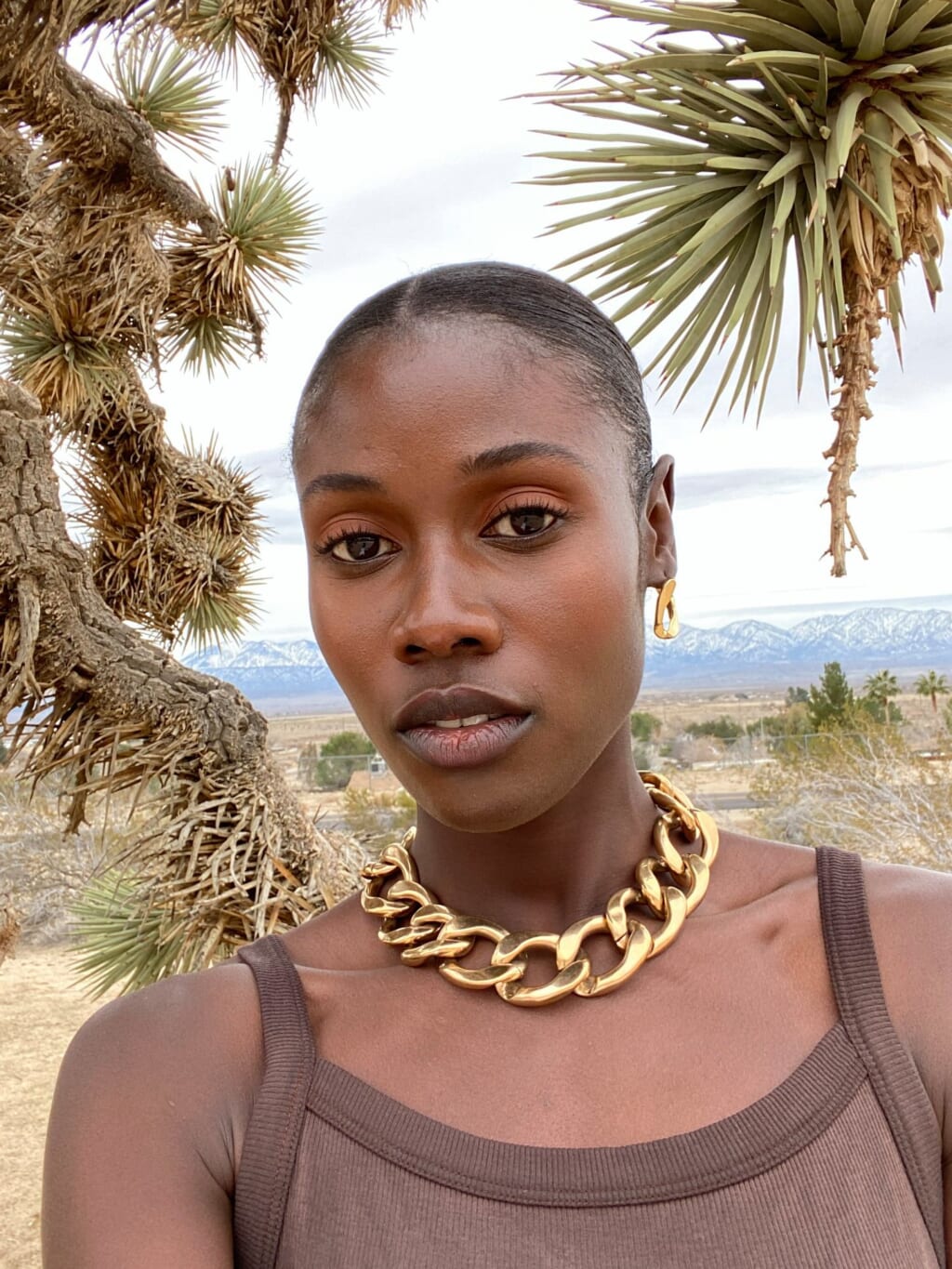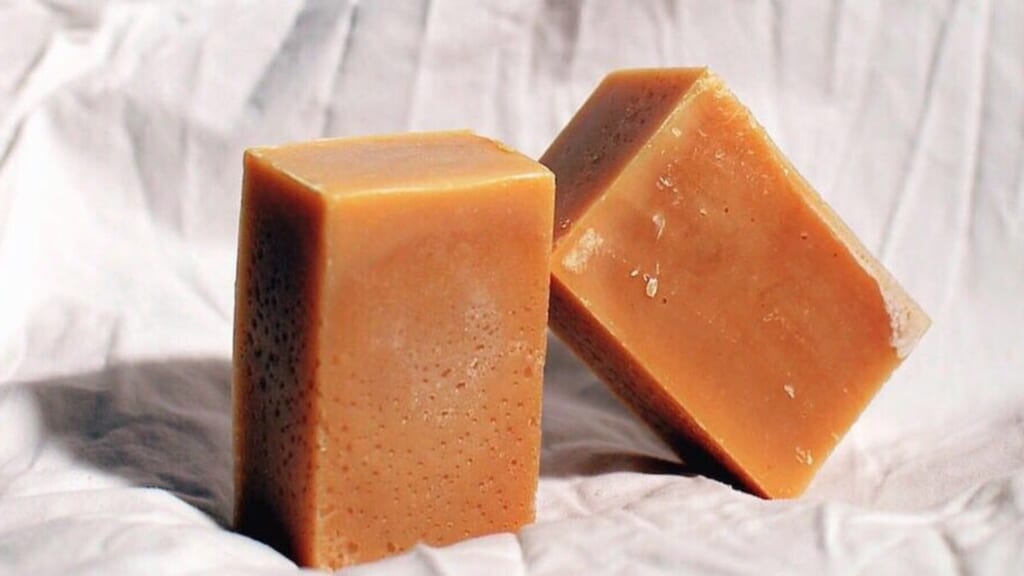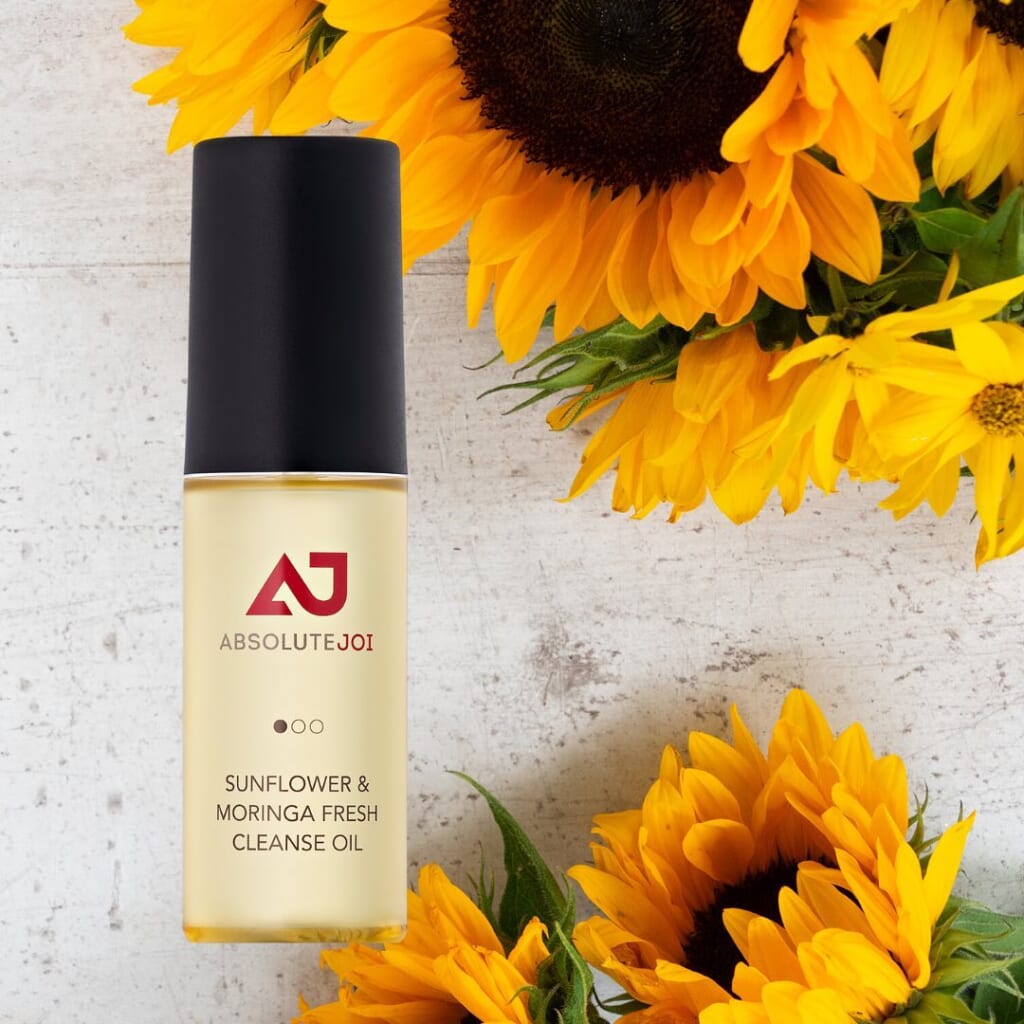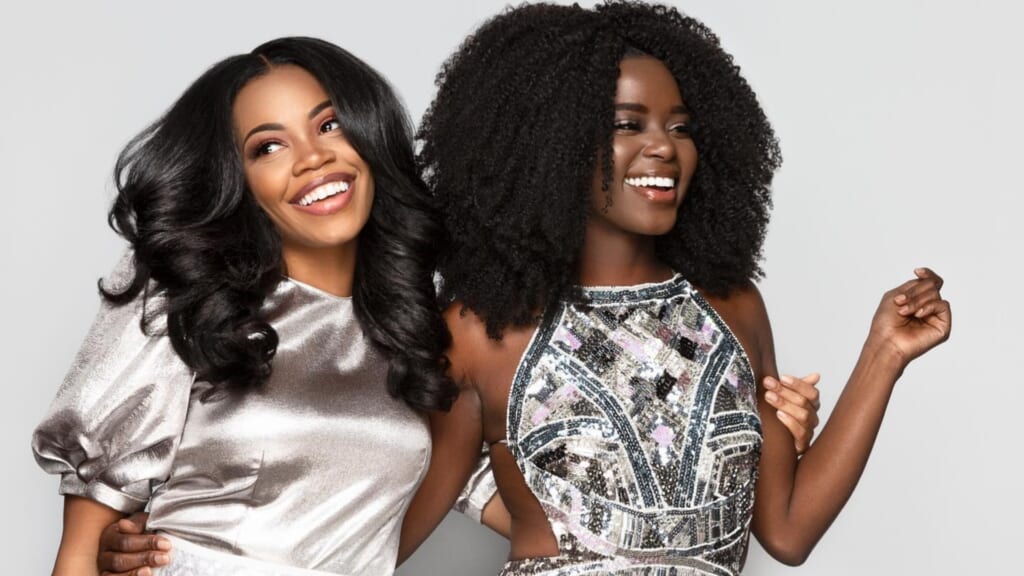How Glossier is helping reframe the beauty industry by centering Black women
Black-owned companies Pound Cake, Redoux, AbsoluteJOI and Melanj Hair are planning to use their Glossier grant money to take over the beauty industry
Glossier, the skincare brand that creates “products inspired by real life,” announced a $500,000 grant that would be awarded to beauty businesses run by Black people.
It should be noted that these businesses aren’t using the money they’ve won to create a product. These entrepreneurs have quality products and strong brands which have been self and community funded. They’ve already poured their time and money into their businesses. Glossier is simply leveling the playing field and making things more equitable for those who have innovative ideas.

Read More: Beyoncé donates $1 million to small Black-owned businesses
15 of the 16 companies that Glossier chose were founded by Black women.
“These 16 businesses—ranging from a superfood-based beauty and wellness company to a soon-to-launch men’s hair care brand—blew us away with their vision, ingenuity, and passion for changing the beauty industry for the better,” wrote Kim Johnson, senior community manager.
theGrio spoke to the owners of Pound Cake, Redoux, AbsoluteJOI, and Melanj Hair to discuss the future of their businesses and the future of Black beauty.
In the early 20th century, cake, or pancake, was a popular type of makeup. It came in a small container and left a powdery white layer on the wearer’s face. Although almost a century later, makeup has evolved, Camille Bell, 26, says she thinks the makeup industry is “still, for the most part, problematic.”
Bell is the founder of Pound Cake, “a pro-black, pro-fat, and pro-queer cosmetics company.” Pound Cake is a verb, not a noun, Bell says. She wants to completely destroy and pound out the beauty industry’s current reality. They are focused on producing varieties of red lipsticks for women of various skin tones.

Though founded in 2016, Bell and Pound Cake are the winners of one of Glossier’s prelaunch grants. The brand will receive $10,000 to assist with its launch.
“This entrepreneurial process is very long, especially for those who are Black and even more so for those who are Black and who are women,” said Bell.
Working with her boyfriend, Bell began creating materials to pitch her idea. She won a global initiative award at the Idea Pitch Competition at Temple University in 2016. From then on she continued to go to pitch competitions to try and raise money and awareness for her brand.
After a number of final-round losses, Bell started an Indiegogo crowdfunding campaign. She was able to raise over $20,000 from her community.
Bell channeled all of this money into brand development. She didn’t rush into releasing a product and spent two years on research and development.
Their first lab was on the West Coast, so Bell spent hours on calls and received countless mailed samples in order to make sure her vision was achieved.
“We wanted it thick, we wanted it creamy, we wanted it vegan, paraben free, cruelty free. It couldn’t crumble. It had to be moisturizing for the lips.”
With the help of Glossier, Pound Cake is ready to go into mass production and they plan to have their full launch in October. A portion of their grant money will be used for marketing and brand promotion.
Asia Grant, 25, and Alejandro Cuevas, 25, founded Redoux. The brand “is a line of sophisticated scents and vegan skincare for the modern nostalgic.” They sell serums, soaps, candles, and more.
Redoux received an early stage grant of $30,000. When beginning the business, Grant and Cuevas put up $10,000 collectively.
“No fundraising, no original angel investors, nothing from family. Just two broke college kids with some savings that wanted to start something together,” said Grant.
They focused on their niche market and because of their strong branding, the company has been self-sufficient since last July.
“I am obsessive over branding,” said Grant.

She followed Glossier’s rise from the beginning, even going to one of their showroom launch events in 2015 in New York City. At the event, there was a room that used sound and smell to encapsulate what it means to be zen.
With scent, experience, and emotion at the forefront of Redoux, Grant credits this experience with helping shape the idea for the brand.
Grant does all of the product and scent development herself. Although she is quarantining in Pennsylvania, where she and Cuevas met at Penn State University, she and the company are based out of New York.
“We are very dedicated to the creative process and we wanted to learn, probably naively, how to run a business ourselves,” said Grant.
While she works on the creative content, Cuevas, who is getting a Ph.D. in computer science, works with the numbers and logistics.
The majority of their grant money will be used to scale operations and create new and sustainable packaging. A portion will also be used to build a larger consumer base.
“All of our growth so far has been organic growth, so we’re going to use it to explore marketing around brand awareness.”
Redoux, however, doesn’t want to pay for ads.
“Paid marketing is not within our taste because we want people to feel that it was a personal choice for them to one, come into contact with Redoux, and two, it was their choice to use it,” Grant said.
Redoux’s team has been conducting meetings about how they will be able to use the money to promote their brand without paying for ads outright.
Grant says that Glossier is a pioneer in the industry and is not surprised that they are one of the first to make a move like this. When referencing other large beauty brands, Grant said, “It’s kind of like you have to put on a dog and pony show to even get their attention.”
“[This grant] speaks to their company values.”
Dr. Anne Beal, 58, founded AbsoluteJOI when she was living in Paris. Due to the mineral content in the water, she was having a lot of problems with her skin.
A friend told her about Aroma-Zone, a store where one can create custom beauty products or buy natural ingredients for beauty products.
“I went to the store and was struck that it was filled with Black and Brown women. A lot of people, when they think of Paris, they don’t realize there’s a large African community there, there’s a large West Indian community there.”

She realized that although they were all living in the skincare capital of the world, all of these women of color had to resort to making their own products because the market didn’t serve them.
Beal then began working on her company and in December of 2018, they launched their first night oil. After building trust with their first product, AbsoluteJOI rolled out new products including cleansers and toners.
She used her medical expertise and information from peer-reviewed journal articles to find her active ingredients. She studied the safety of all the chemicals in her products.
“I want to see the clinical trials that tell me those ingredients work,” said Beal.
Beal produces all of her products in Europe.
“They have about 1300 ingredients that are banned for use in personal care products because in order to be used you have to prove that it is safe. While here in the U.S., we only have 11 ingredients that are banned for use and that’s because our standard is you have to prove that it is unsafe.”
Beal also says that although the launch was focused on the U.S., there are black women everywhere and she needs a product that meets an international standard so that it can be exported across the globe in the future.
AbsoluteJOI was given a $50,000 growth grant from Glossier and Beal says the money will be used for intense digital marketing.
“When people get my product in their hand and when people use it, they like it and they come back at much higher rates. So I knew that where I had to invest in was getting my products into people’s hands.”
Most companies have a 10% repeat customer rate. AbsoluteJOI has a repeat customer rate of 30%.
Beal believes that more companies like Glossier need to keep their eyes on companies founded and run by Black people. She believes that a lot of the new innovations in terms of hair care, skincare and makeup are coming from companies like this and collaborations with these new companies would be a good business move for major beauty brands.
“It does grow them as well,” said Beal. “It would be not just the right thing to do but the smart thing to do.”
Another one of the companies that won Glossier’s $50,000 growth grant is Melanj Hair. Melanj Hair, founded by Whitney Rene, 33, and her sister NIkki Lane, 38, sells “premium textured hair extensions.”
In 2011, Rene and Lane began a Youtube channel focused on natural hair. They shared tips and hairstyles on the platform way before anyone was getting paid for it. The two built a loyal audience and became influencers in their own right.
Rene and Lane leveraged this social media attention and started their brand.

“It’s a passion. It’s one of those things where you turn your hobby into something that can provide you with longevity,” said Lane.
In 2018, they began doing research on natural hair extension companies. They eventually found the perfect company that could create products that blended seamlessly with textured hair. They custom designed all of their textures before the company produces them.
“All of our hair is several different textures,” said Rene.
“On one head sometimes,” added Lane.
The company officially launched in March of 2019 and they currently have 6 textures in several lengths and styles available on their website.
Lane and Rene have done almost all of the heavy lifting themselves: they still package and ship orders out. Besides the physical production of their products, they haven’t outsourced any labor, besides the occasional help from friends and family. This hustle mentality helped keep costs low so that the business could begin to see profits.
The sister’s initially funded the business themselves and eventually received money from their mother.
“I now call her a momager,” Lane. Their sisters run the business out of their mother’s house, who Lane says is constantly giving them advice and keeping them focused.
Melanj is currently working on creating wet products like shampoos, conditioners and creams. They began the process late last year, but never perfected their product.
“That’s why we are so excited to have this grant. It really does give us an opportunity to expand,” said Rene.
Some critics have said that the timing of Glossier’s grant seems opportunistic – that they are just putting on a show. Rene doesn’t buy it. “A lot of these companies, they’re not perfect, but if you’re trying and you’re literally doing something that is going to help the community…”
“If you’re sitting at the table with an open mind to say what can we do differently, I think we should allow that,” Lane said, finishing her sister’s sentence.
“We can’t beat them up if they’re actually trying,” Rene continued.
Rene and Lane see their company moving into the retail space and becoming a huge name in the global hair industry. Lane mentioned her dream of seeing their products in stores like Ulta, Sephora and Sally’s. “I’m the dreamer,” she said.
“Continuing to remain humble and also giving,” said Rene when asked about her vision for the future. “If Melanj can help another thriving business or a young girl or anyone, that’s where I see it in general. And of course, passing it on to our little girls – generational wealth.”
In less than 10 years Glossier has become a billion dollar company by having great products, but also by making all of the right industry moves.
According to a blog post on the company website, Glossier, which was founded in 2014, was “fortunate to be one of the rare female-founded businesses to successfully raise venture capital; that year, only 3.1% of venture dollars raised by US-based companies went to women.”
Even less of those dollars went to Black women.
Read More: Alicia Keys and NFL launch $1B fund for Black businesses and community
“Black consumers wield an enormous amount of purchasing power, yet Black women have received only .0006 percent of the $424.7 billion raised in venture capital since 2009,” said the blog post.
Black owned businesses are doing great things, and word of mouth has helped keep them afloat. With this grant and the mentorship provided by Glossier, it shouldn’t be difficult for these new companies to make millions.
Have you subscribed to theGrio’s podcast “Dear Culture”? Download our newest episodes now!
